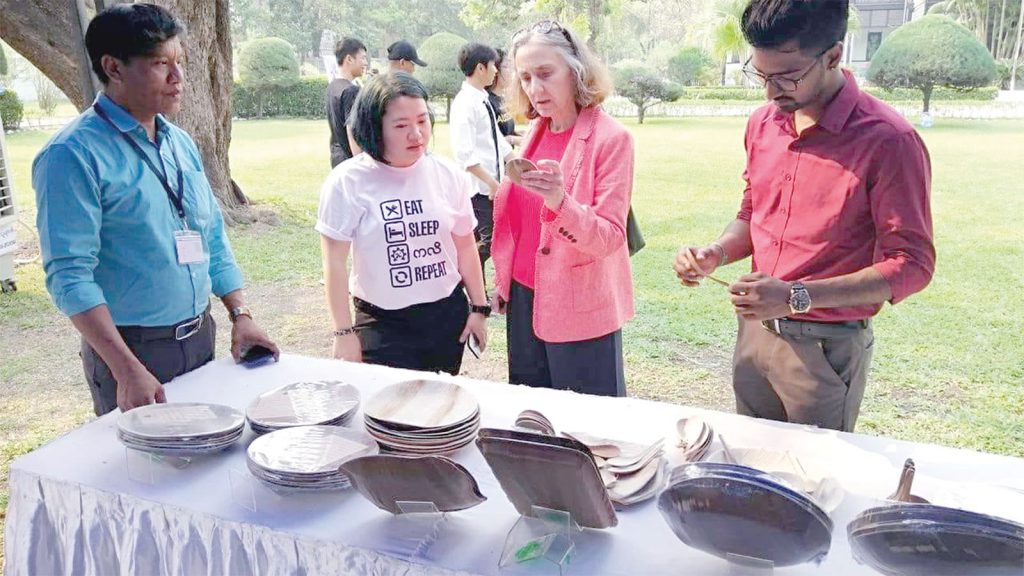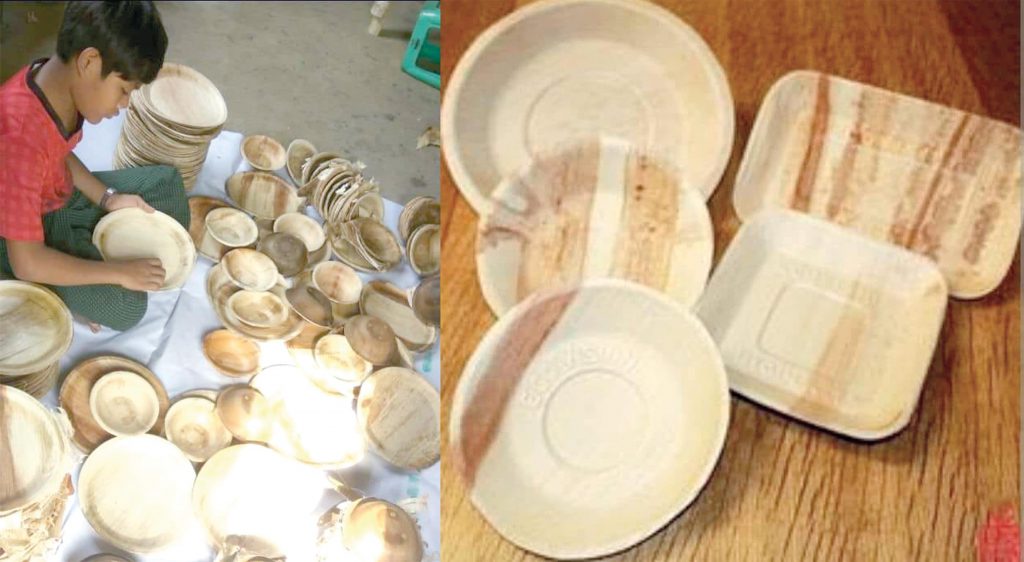19 May
A local disposable consumer product producer hopes to have a great impact on protecting the environment from the ravage of non-biodegradable plastic products.
U Kyaw Moe, a producer of disposable plates, spoons, bowls and trays from areca palm in Mandalay had seen the ugly sites of such single use non-biodegradable plastic spoons and polystyrene packages littering picnic sites and parks. He began trial production of areca palm based disposable plates, spoons, bowls and trays in 2016 with an aim of minimizing environmental impact from disposed single use products. Commercial distribution of his products to the local market was started in financial year 2018-2019.

A huge impact had been made to our environment from single-use plastic and polystyrene packages that just stays around forever or ended up in land fill or in the ocean. There’s been news about plastics littering the deepest depth of our ocean and it had even entered into our food chain with fishes mistakenly eating plastics which end up in our stomach.
That was why U Kyaw Moe decided to produce single-use products with areca palm from areca plant. As it was a natural product that was bio-degradable that becomes a fertilizer as it degrade biologically there wouldn’t have any impact on the environment.
U Kyaw Moe said his products are heat resistant up to 140 degree Celsius and can be reused for up to ten times. Once it was discarded, it’ll become a natural fertilizer in three days so there wouldn’t be an ungainly site of his products littering the environment like the non-perishable plastic products.
At present 16 types of products including plate, bowl, spoon and tray were produced from areca palm and his production was unable to meet the demand from the local market. He had also exported his products to Singapore in February. His production facilities were also being tested by relevant ministries for being free from any harmful chemical inclusion in the finished products.
A plate and spoon made from areca palm was sold for Ks 100 and Ks 15 respectively. This may cost more than comparable products made from plastic but both the consumer and the government need to consider the long term cost and benefit issue. What is the benefit of using cheaper products when you end up in a world filled with plastic or non-biodegradable rubbish? Will the plastic products still be cheaper if we consider the cost of cleaning it up? So should we as a consumer encourage and support this product? On the government side, it could support by taxing the non-biodegradable products to cover for the cost of cleaning it up and to prevent people from using it. This will be in the same principal of taxing tobacco and liquor at a higher rate to prevent people from using it as well as to cover for the medical support the government had to provide for people affected by tobacco and liquor.—Min Htet Aung (Mandalay Sub-printing House) (Translated by GNLM)


